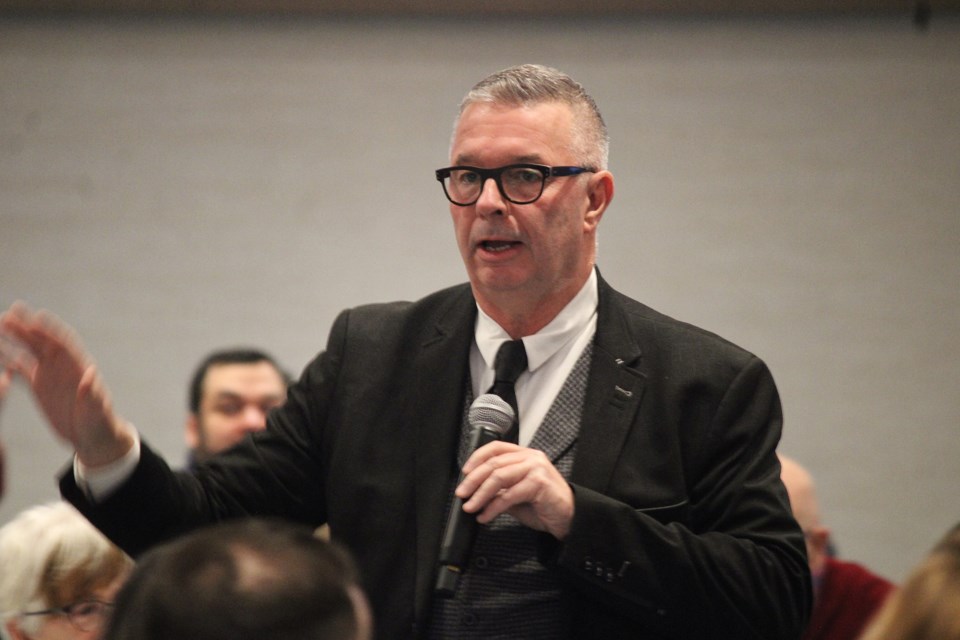ELORA – Centre Wellington’s mayor is leading a “planning council” this term and one that’s going to have to make a lot of tough decisions as it sets a vision for the township’s next 25 years.
Shawn Watters made the comment at the Centre Wellington Chamber of Commerce mayor’s breakfast on Wednesday morning at the GrandWay.
He started his speech recapping the township’s busy 2023 which included a lot of development approvals including construction permits for 225 single homes, 498 townhouses and 259 apartment units – nearly 1,000 new units.
“That’s a big, big number for our community, we haven’t had that growth like that in our community,” Watters said. “I would call it sort of the new norm.”
Centre Wellington is mandated to grow from about 30,000 people it is right now to nearly 60,000 by 2051, which the mayor said means this term of council needs to plan the vision of this community over the next 25 years.
This means a number of things have to be considered and figuring out the urban boundaries around Elora and Fergus is an important one.
Earlier in 2023, the province included 1,000 acres of urban boundary growth with its approval of OPA 119 but this was later walked back by the province.
Much of this was in Elora and Fergus, which the mayor noted a report found both towns need about 1,000 acres of additional land to accommodate population and employment growth. The development community has asked for even more.
“Right now we have in front of us a request for over 3,000 acres of land to be brought into the urban boundary from various folks,” Watters said. “That’s a tough one. This is what our staff and council are having to balance with what makes sense and that’s a really hard decision.”
Factors they have to balance, the mayor said in his speech, includes protecting as much agricultural land as possible as it is Wellington County’s biggest industry.
Part of the way to do that is through intensification which may bring development styles that aren’t typical of smaller towns in Ontario, for example proposals for taller developments than usual.
“These things can work, we’ve travelled, we’ve been to Europe, we’ve been to other communities where there is more intensification that does work but it is new for us,” Watters said. “There's always a fear of change but in order to save prime ag (land), get growth, I think we’re definitely going to be making some tough decisions.”
With this in mind, the mayor said this means not all of the proposed development that would see the urban boundary expanded will get in.
“That’s partly because serviceability, partly whether it makes sense in terms of where it’s located, conflicts with agriculture, so it’s going to be a tough decision and there’s going to be some folks that are not going to be too happy,” Watters said.
Intensification targets are expected to come to council in the spring.




.png;w=120;h=80;mode=crop)